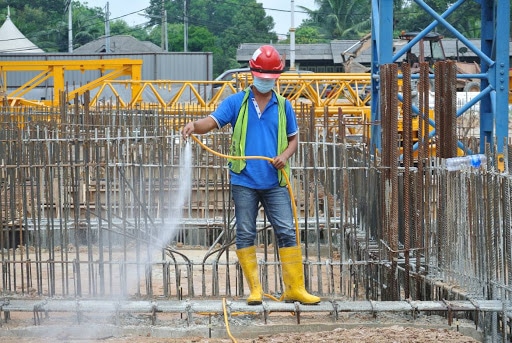
Anti-Termite Treatment Services
Anti-termite treatment, also known as termite control or pest management, is a process designed to prevent, control, or eliminate termite infestations in buildings, structures, and wood-based materials.
Termites are destructive pests that feed on cellulose-containing materials, such as wood, paper, and plant fibers, causing significant structural damage. To protect your property from termites, consider the following methods for anti-termite treatment:
Soil Treatment: This is one of the most common methods for termite control. It involves creating a chemical barrier in the soil around the building's foundation. Termiticides, chemical substances that are toxic to termites, are applied to the soil to create a protective barrier. The termites are exposed to the chemicals when they try to tunnel through the treated soil, ultimately leading to their elimination.
Wood Treatment: To protect wooden structures and furniture, you can apply wood preservatives or treatments that deter termites from feeding on or infesting the wood. This can include chemical treatments and pressure treatments to ensure the chemicals penetrate deep into the wood.
Bait Systems: Termite bait systems involve placing bait stations in the ground around your property. These stations contain a termite attractant along with a slow-acting toxic substance. Termites are drawn to the bait, feed on it, and carry the toxic substance back to their colony, eventually eliminating the entire colony.
Physical Barriers: Physical barriers can be installed during construction to prevent termites from gaining access to the building. This may include using termite-resistant materials or installing metal or plastic barriers in the construction.
Regular Inspections: Routine inspections by professional pest control experts are essential to detect termite infestations early. Early detection can lead to more effective and less costly treatment options. Regular inspections are particularly important in areas prone to termite activity.
Chemical Treatments: In cases of severe termite infestations, fumigation or localized chemical treatments may be necessary. These methods involve the application of strong termiticides by licensed professionals to eliminate the termite colony.
Preventive Measures: To reduce the risk of termite infestations, homeowners can take various preventive measures. These include keeping the property free of wood debris, maintaining adequate ventilation in crawl spaces, and eliminating moisture problems that can attract termites.
It's crucial to consult with a professional pest control company for a thorough evaluation of your property and the best anti-termite treatment plan. The choice of treatment method will depend on the severity of the infestation, the type of termites involved, and the construction of the building. Effective anti-termite treatment is essential to safeguard your property and prevent costly structural damage.